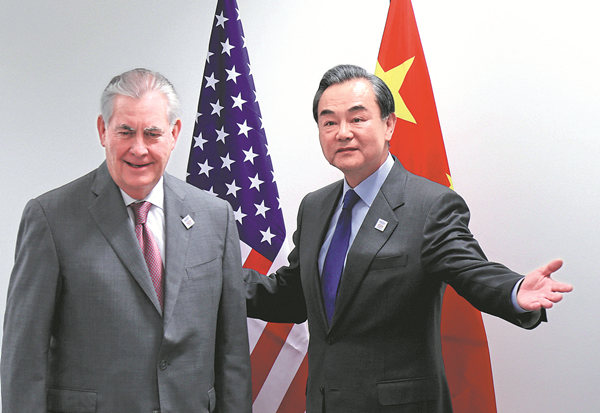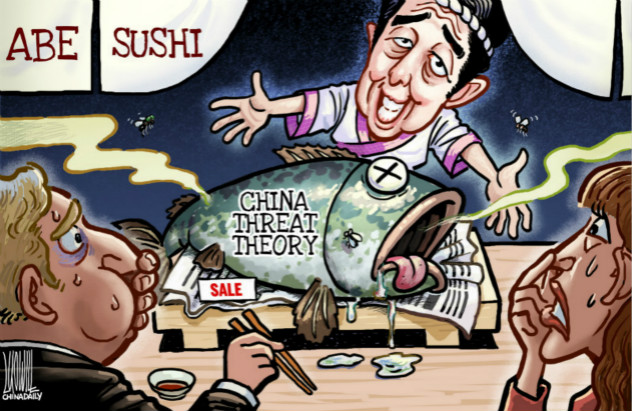China and US restore belief that they can reduce frictions
 |
|
Foreign Minister Wang Yi and US Secretary of State Rex Tillerson meet on the sidelines of a gathering of foreign ministers of the G20 leading and developing economies at the World Conference Center in Bonn, Germany, on Friday. [Photo/China News Service] |
The outlook for this year once appeared bleak with the United States seeming set on a collision course with China.
Pessimistic predictions of conflict, sparked by their differences over issues ranging from Taiwan to the South China Sea to currency and trade, appeared particularly credible when weighed against the background of US President Donald Trump's tough-talking tweet storm against China and Secretary of State Rex Tillerson's pre-inauguration belligerency.
But the belated phone conversation between the Chinese and US presidents was the previously missing stabilizer that restored lost confidence that the two countries could get along, and Friday's meeting between Tillerson and Foreign Minister Wang Yi in Bonn, Germany, struck a positive note indicating the two countries were still willing to work together to forge friendly relations.
Although the meeting between the two countries' top diplomats was welcomely upbeat, there is no denying Beijing and Washington have different, sometimes competing, interests and priorities.
While Wang reiterated the US' adherence to one China as the precondition for China-US relations, Tillerson highlighted "a level playing ground for trade and investment", as well as cooperation on denuclearization of the Korean Peninsula.
The Trump administration has brought a change of style to the country's diplomacy and shifted its focus inwards, blaming the US' economic woes on globalization. The withdrawal from the Trans-Pacific Partnership agreement was widely viewed as being the new US president's first shot at globalization and the harbinger of an isolationist Trump era.
President Xi Jinping's speech at the World Economic Forum in Davos, Switzerland in January, on the other hand, was the ultimate Chinese assertion of faith in the process of economic globalization.
And differences exist between China and the US on some of Asia-Pacific's most sensitive issues, from the South China Sea to the Democratic People's Republic of Korea's nuclear weapons program, that are just as obvious.
These differences run deep and broad, from historical facts to present-day international law.
But both Wang and Tillerson left their meeting expressing the conviction that working together, instead of against each other, will benefit their countries, and the world, more.
So long as there is a shared understanding of the harm of confrontation, and the benefit of cooperation, as well as a willingness to talk, there is little that cannot be handled.
This has been proven true through different leaders on both sides since diplomatic relations were established, and hopefully, that will continue to hold true through the Trump presidency.

























